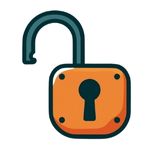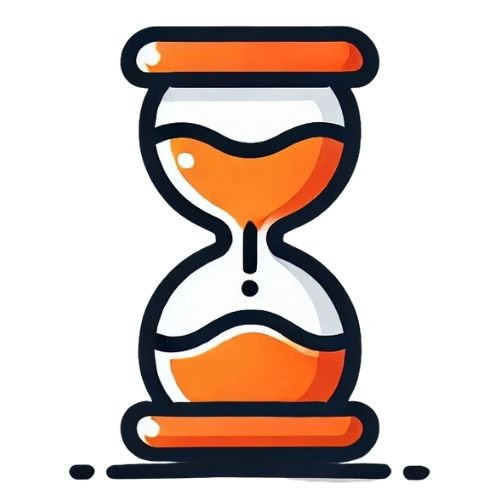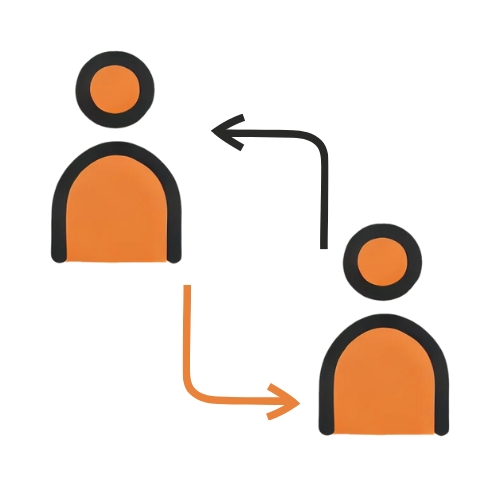
Accessing credit in South Africa can be difficult if you have a low credit score, but it’s not impossible. A poor credit rating often limits your borrowing options and affects the terms offered by lenders. However, there are still various ways to secure a loan or find alternative financial support, even if your credit profile is not ideal. Understanding how credit scores work, what affects them, and the different loan types available can help you make informed choices.
DISCLAIMER: The information provided in this article is accurate at the time of publication but may be subject to change. Readers are encouraged to verify any figures, rules, or policies with the relevant credit bureau, financial institution, or legal authority.
Key Takeaways
- Credit Score Thresholds: A credit score below 550 is generally viewed as poor in South Africa and may result in limited loan options, higher interest rates, or declined applications.
- Types of Available Loans: Even with bad credit, borrowers may qualify for unsecured loans, secured loans, short-term credit, or peer-to-peer lending, though terms are often stricter.
- Ways to Improve Credit: Steps such as reviewing your credit record, repaying debts, removing negative listings, and using alternatives like debt consolidation or stokvels can help manage or recover from a poor credit rating.
Credit Scoring In South Africa
A credit score is a numerical figure used by South African credit providers to evaluate a person’s creditworthiness. Depending on the credit bureau, the score typically ranges from 0 to 999 or 0 to 1200.
This number acts as a risk indicator for institutions such as banks, mobile service providers, and retail finance companies. It helps them decide whether it is financially safe to lend money or offer credit to an individual.
Credit scores are generated based on several key data points related to a person’s financial behaviour. These include:
- Credit history
- Payment record
- Total outstanding debt
- Credit utilisation ratio
A higher credit score is generally more favourable. In South Africa, a score above 600 is typically seen as acceptable by most lenders. Further details about specific score categories are outlined below.
Improving your credit score doesn’t have to be a mystery. By following these steps to improve your credit score, you can increase your chances of getting approved for a loan, even with past financial hiccups. From timely payments to reducing your credit utilisation, these practical tips pave the way to financial recovery.
About Arcadia Finance
Effortlessly secure your loan with Arcadia Finance. With no application fees and access to 19 trusted lenders registered with South Africa’s National Credit Regulator, you can count on a smooth, secure process designed to meet your financial needs.
What Is Considered A Bad Credit Score?
In most cases, a score below 550 is regarded as poor within South Africa’s credit scoring system. While this benchmark might differ slightly across various financial institutions, staying above this threshold improves one’s chance of being approved for credit.
Applicants with low scores often face limited credit access, are offered unfavourable loan terms, or may be declined altogether. Those in this category may also encounter higher interest rates and reduced loan flexibility.
The Impact of Bad Credit on Loan Eligibility
Having a poor credit history can significantly affect your ability to secure a loan in South Africa. Lenders use credit scores to assess the level of risk associated with lending money to a borrower. A low credit score typically signals to lenders that you may have struggled to repay debts in the past, which can make them hesitant to offer you credit.
When you apply for a loan, financial institutions will review your credit report, which contains details about your borrowing history, repayment habits, outstanding debts, and any defaults or judgements. If your credit record reveals missed payments or high levels of debt, you may either be declined outright or offered a loan at a much higher interest rate to compensate for the perceived risk.
Moreover, some lenders may impose stricter requirements, such as demanding collateral or a guarantor, before approving a loan for someone with bad credit. Others might cap the amount you can borrow or offer shorter repayment terms.
Despite these challenges, not all hope is lost. Some financial providers specialise in bad credit loans and may consider other factors such as income stability, employment history, or recent efforts to manage finances more responsibly.

What Are Bad Credit Loans?
Bad credit loans refer to lending options intended for individuals who have a poor credit record or limited credit history. These loans usually come with higher interest rates and stricter conditions, as lenders are taking on more risk when approving the credit. While the terms are less favourable than standard loans, they may still offer a practical way to access funds if used carefully and repaid on time.
It’s worth noting that lenders do not usually promote products under the term ‘bad credit loans’; this is simply an informal label often used by consumers.
If traditional banks shut the door, don’t give up. Learn about options for a loan when all banks refuse. This guide explores alternative lenders and what to consider when taking non-bank loans.
How Can I Get A Loan With Bad Credit?
Start by assessing how much you can realistically afford to repay each month. Once you know your budget, compare loan options from various lenders to identify one that suits your current financial circumstances. We act as a credit broker, not a lender, meaning we do not issue loans ourselves, but we can assist you in reviewing multiple offers in one place.
Apply only for loans where you have a reasonable chance of approval, as each application may trigger a hard inquiry on your credit report, which could reduce your credit score. To avoid unnecessary marks on your report, check your loan eligibility in advance, as this gives you a clearer idea of your likelihood of being accepted. For instance, some credit bureaus provide eligibility ratings when comparing personal loan offers.
DISCLAIMER: Loan terms, interest rates, and approval decisions are determined solely by the lenders based on their own assessment criteria.
Types of Bad Credit Loans Available in South Africa
If you have a poor credit history, obtaining a traditional bank loan can be difficult. However, there are several types of alternative loans in South Africa designed to assist individuals with bad credit. Each option has its own structure, requirements, and risks.

Unsecured Personal Loans
Unsecured personal loans do not require any form of collateral. Lenders assess your creditworthiness by reviewing your financial history, income, and repayment behaviour. These loans are often used for personal expenses such as education, medical bills, or home repairs. In most cases, you can borrow up to R350 000 with repayment periods ranging from 12 to 72 months. Due to the lack of security, the interest rates are generally higher. Failure to repay on time can lead to additional charges and a further deterioration in your credit score, and may even result in legal action.

Short-Term Loans (Payday or Microloans)
Short-term loans are designed for smaller, urgent financial needs. These may include payday loans or microloans, which typically offer quick access to funds for emergencies. The repayment period is short, usually up to six months, and the maximum amount is often limited to around R8,000. Because these loans are considered high risk, lenders often charge interest rates close to the legal maximum of 5% per month, as allowed under the National Credit Act. While useful in emergencies, these loans carry a high risk of debt escalation if not managed properly.

Secured Loans (Collateral-Based Loans)
Secured loans involve offering an asset, such as a car or property, as security for the loan. This arrangement reduces the lender’s risk, which can result in lower interest rates and higher loan amounts. The amount you can borrow typically depends on the value of the asset you offer. Repayment terms can extend over a few years. The primary risk lies in the fact that if you fail to repay the loan, the lender has the legal right to repossess the asset used as collateral.

Peer-to-Peer (P2P) Lending
Peer-to-peer lending platforms offer an alternative route by linking borrowers directly with individual lenders. This form of lending cuts out traditional financial institutions. Terms of the loan, including the amount, interest rate, and repayment period, are agreed between the parties through the platform. Some P2P platforms are more flexible with applicants who have poor credit histories. However, because this form of lending is less regulated, borrowers must be cautious. Interest rates may still be high, and protections are not always on par with those offered by registered credit providers.
DISCLAIMER: Borrowers should consider their ability to repay before applying, as missed payments may lead to additional fees or legal consequences. These loans should be used responsibly and only when other lower-cost alternatives have been ruled out
Pros and Cons of Taking a Bad Credit Loan
Bad credit loans can offer a much-needed financial lifeline to individuals who struggle to access traditional forms of credit. However, they also come with significant considerations. Understanding both the advantages and the risks is essential before taking on this type of borrowing.
Pros
- Access to Funds in Emergencies: Bad credit loans can provide access to money when you need it most, such as during unexpected medical expenses, car repairs, or urgent bills.
- Opportunity to Rebuild Credit: If managed well and repaid on time, a bad credit loan can help improve your credit score over time by demonstrating responsible borrowing behaviour.
- Flexible Eligibility Criteria: Some lenders consider factors beyond credit scores, such as current income, employment status, and affordability, which can make it easier to qualify.
- Range of Loan Options: Depending on your circumstances, you may be able to choose from unsecured personal loans, secured loans, or payday loans tailored to those with poor credit.
Cons
- Higher Interest Rates: Because of the perceived risk, bad credit loans often come with significantly higher interest rates, increasing the total cost of borrowing.
- Shorter Repayment Terms: Lenders may limit repayment periods, resulting in higher monthly instalments that can strain your budget.
- Risk of Falling Into a Debt Cycle: If not carefully managed, high-cost loans can lead to repeated borrowing, making it difficult to escape long-term debt.
- Predatory Lending Practices
There is a higher risk of encountering unregulated or unscrupulous lenders who take advantage of vulnerable borrowers. It’s essential to deal only with registered credit providers.

Government and Non-Profit Support Options
If you have bad credit and are struggling financially, there are government-backed and non-profit resources in South Africa that can offer support, advice, and in some cases, alternative credit options.
National Credit Regulator (NCR)
The National Credit Regulator (NCR) oversees the credit industry in South Africa and ensures that all credit providers comply with the National Credit Act. It also provides educational resources to help consumers understand their rights and manage credit more responsibly. If you believe you’ve been treated unfairly by a lender, you can lodge a complaint with the NCR.
Registered Debt Counsellors
Debt counselling is a regulated service designed to assist consumers who are over-indebted. A registered debt counsellor will assess your financial situation and help you enter into a debt review process, which may involve renegotiating your repayment terms with creditors. This process is legally protected and helps prevent further legal action while you work towards financial rehabilitation.
Credit Unions and Non-Profit Lenders
There are credit unions and non-profit organisations that offer loans at lower interest rates and with more flexible criteria than traditional banks. These community-based lenders often focus on financial inclusion and may provide smaller loans with reasonable repayment plans.
Financial Literacy Programmes
Various NGOs and government programmes offer financial education workshops and one-on-one advice to help South Africans build budgeting skills, manage debt, and improve credit habits. These services are often free and can be a valuable step toward long-term financial stability.
Conclusion
Although having a bad credit record can limit your borrowing options, it does not mean that accessing finance is entirely out of reach. South African borrowers can still consider tailored loan options such as secured credit, short-term loans, or peer-to-peer platforms, while also exploring safer alternatives like debt consolidation or employer salary advances. It is also possible to gradually improve your credit score through responsible financial behaviour, settling outstanding debts, and correcting any inaccurate listings. Careful budgeting, realistic borrowing, and a commitment to long-term financial discipline can help restore creditworthiness over time.
Frequently Asked Questions
Yes, it is possible, but options may be limited. Lenders may offer smaller amounts, shorter terms, or higher interest rates to offset the higher risk associated with a low score.
Short-term loans or secured loans are typically easier to access. However, they come with higher costs or require you to pledge an asset as collateral.
Yes. Each application can trigger a hard inquiry, which may temporarily reduce your score. It’s better to check eligibility before applying.
No. While under debt review, lenders are not permitted to offer you new credit. You’ll need to complete the process and obtain a clearance certificate first.
Most negative listings, such as late payments, remain for up to two years. Court judgements and defaults can stay for five years unless the debt is settled and formally updated.





